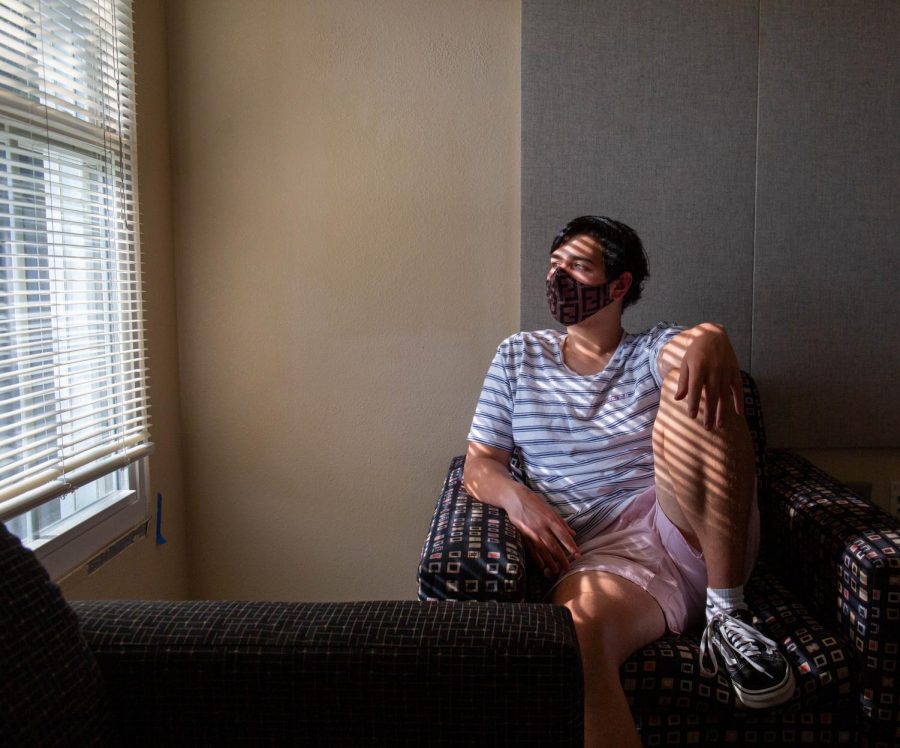The Importance of Mental Health as Utah Prepares Return to Normal
Freshman Michael Manhard takes a break from online classes in a common area at the University of Utah on Oct. 10, 2020. (Photo by Gwen Christopherson | Daily Utah Chronicle)
May 8, 2021
When the COVID-19 pandemic hit, isolation became a necessity to maintain public health and safety. This gave rise to another sort of pandemic: one that affects the mind, rather than the body.
Isolation due to quarantine is a leading cause for the mental health crisis that America faces, and returning to normal without recognizing that the world has changed does not seem to be the solution.
After over a year of quarantine, the world is shifting back towards an idea of normality. Vaccines are becoming increasingly available to all members of the public, bars are becoming more crowded, offices and schools are reopening, and even concerts are beginning to make a comeback.
While many people are ecstatic to be able to return to social events, others recognize that the effects of quarantine will make the transition back to normal life difficult for some people.
According to the Kaiser Family Foundation, just 11% of adults reported symptoms of anxiety and/or depressive disorder from January to June of 2019.
In January of 2021, 41.1% of adults reported that they regularly experience symptoms of anxiety and depression caused by extended isolation and economic stress; the disparity between these numbers shows the significant impact that the pandemic has had on mental health.
“It isn’t going to magically get better the minute we go back to being with other people, especially if they’re all depleted and stressed out,” said Lisa Aspinwall, a psychology professor at the University of Utah who studies how people think about the future, including future health risks.
Chris Shepard has been working remotely for the Department of Technological Services for the state of Utah since the beginning of the pandemic. Because he has respiratory issues, he has had to be extra careful to follow social distancing guidelines, and the only other person that he regularly sees face-to-face is his wife.
However, he still holds anxieties about getting sick and feels that he has put so much effort into protecting himself from the virus that it would be detrimental to return to social spheres, even fully vaccinated.
“The thought of going back out into the world just feels like directly increasing that risk, without any obvious benefit,” he said.
He also worries about the time he would lose if he had to return to work. During quarantine, he has been devoted to cooking healthy meals and working out, resulting in a 30-pound weight loss.
With his commute taking about an hour of his day in total, Shepard said that the return to in-person work would disrupt this routine. On long drives, he said he could be tempted to consume fast food again for the first time since March 2020, and he would lose valuable time to work out.
Others worry about their social skills after over a year of living in isolation, or near isolation, with roommates or immediate family members.
Belle Bourland, a student at the U, said she worries that she will no longer have the same ability to flirt or understand what is appropriate in certain situations.
“I feel like I have forgotten how to socialize,” Bourland said.
However, she remains excited to return to normal and is sure that she will adjust. Bourland holds hope for the future, even in the face of change and a pandemic.








